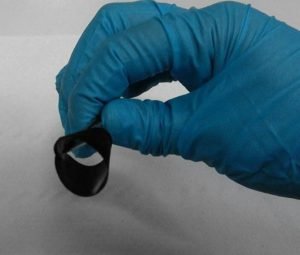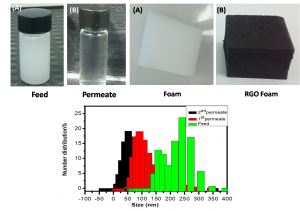Water shortage is one of the top ten global problems which affect people living in our world. Lack of clean and safe drinking water causes 80-90% of all diseases and kills about 4000 children everyday. Water demand increases due to the growth in the population, industrial as well as agricultural developments. However, the renewable water resources remain the same or are even diminishing. In Egypt, the water consumption per capita was 771 m³/year in 2005, and is expected to reach 582 m³/year by 2025. This means that Egypt is currently facing a severe water crisis, since the water consumption per person is below the water poverty line (1000 m³/capita/year). During the last few years, different strategies aiming to efficiently manage the usage of water and reduce water pollution, reuse of wastewater, and desalination of saline water, have been implemented. ESTG is currently developing several types of membranes that can be used for water purification, wastewater treatment, and desalination. Patterned polyamide thin film composite membranes have been developed and optimized in close collaboration with the University of Duisburg-Essen in Germany. The fouling mechanisms of different silica nano- and micro-particles deposited on these patterned membranes have been deeply studied. The idea of incorporating nanoparticles (such as metals and metal oxides) either in the active polyamide and/or support layers of the membranes, have also been explored. Membranes based on carbon nanotubes and 2D materials have been fabricated in our group. These membranes have been used for water purification using pressure and/or thermally driven filtration processes. ESTG has recently developed low cost and effective foams for the treatment of oily waste water. The group is well-equipped with all facilities needed for preparation, surface modification and advanced characterization of membranes.








